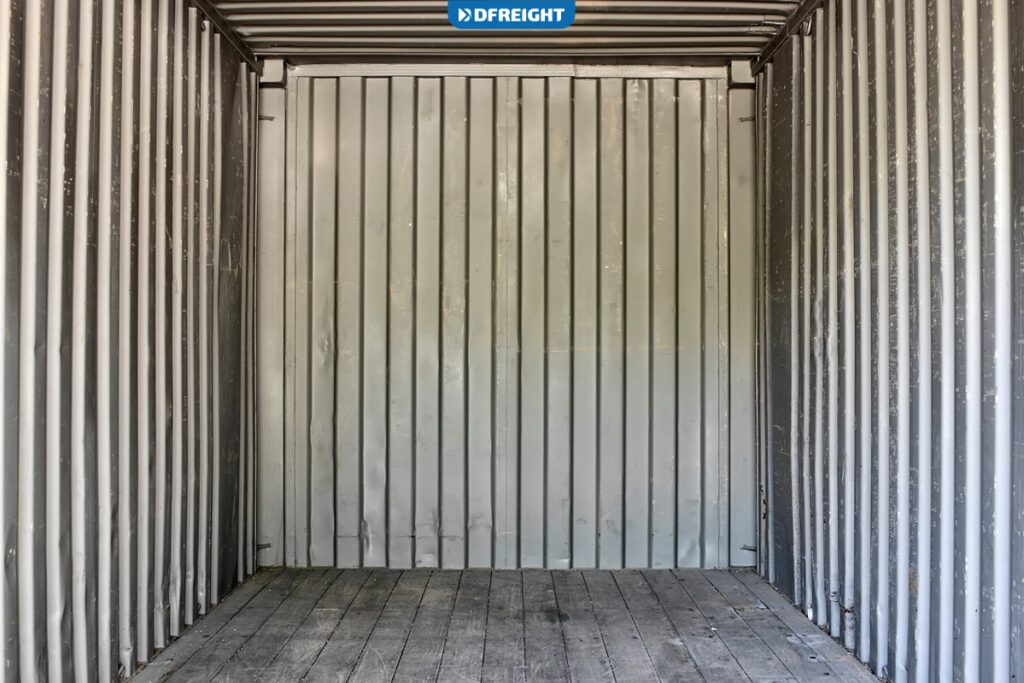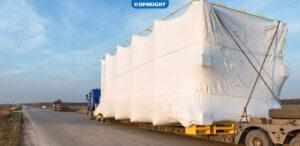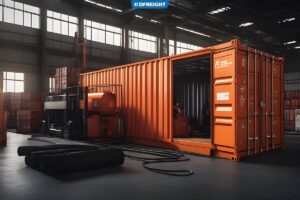If you’re looking for a reliable and sturdy shipping container that can withstand extreme temperatures, then an insulated shipping container is the way to go. Here’s a quick guide to everything you need to know about insulated shipping containers, including the benefits and drawbacks, choosing the right size, and what to look for when making your purchase.
Table of Contents
Introduction
An insulated shipping container is a type of container used to ship goods that need to be kept at a specific temperature. These containers are made with various insulation materials and come in different sizes to accommodate different types of cargo. Insulated shipping containers transport perishable goods, such as food and pharmaceuticals, and sensitive materials that require controlled environments, such as electronics.
An insulated container typically features a layer of insulation material on the walls and ceiling. This container is generally used to ship items that need to be kept at a consistent temperature, such as food or pharmaceutical products.
How Do Insulated Shipping Containers Work?
Insulated shipping containers keep the temperature inside the container consistent, regardless of the temperature. This is done using a material called “insulation,” which is placed between the inner and outer walls of the container. The insulation is a very effective barrier to heat flow, which keeps the temperature inside the container consistent.
There are two types of insulated containers: refrigerated and non-refrigerated. Refrigerated containers use a material that is a good conductor of heat, such as aluminum, to keep the cargo inside the container at a constant temperature. Non-refrigerated containers use a material that is a poor conductor of heat, such as insulation, to keep the cargo inside the container at a constant temperature.

The type of insulated shipping container you use depends on the cargo you are transporting. If you are transporting food, you must use a refrigerated container. If you are transporting other types of cargo, you can use either type of container.
The Benefits of Insulated Shipping Containers
Transporting goods or materials can be a big challenge when getting them to their destination safely, efficiently, and cost-effectively. That’s where insulated containers can help. Here, we’ll explore the advantages of insulated shipping containers and how they can benefit your business. Safety Most businesses want to ensure their products or materials are kept safe, mainly if they are transported over long distances. Insulated containers can safely transport various items, from medicines and chemicals to food, beverages, and other perishable items.
The insulation helps protect the contents from extreme temperatures, whether heat or cold and can also help reduce the risk of breakages. Security Insulated shipping containers can also help to improve security. They can be used to store valuable items, such as jewelry and art, and can also be used to transport cash and other valuables. The containers can be fitted with security features, such as CCTV cameras, alarms, and locks, which can help to deter thieves and vandals. Efficiency Insulated shipping containers can also help to improve efficiency.
They can transport large quantities of goods or materials, which can help reduce the number of journeys that need to be made. This can save time and money and can also help to reduce the environmental impact of transport. Cost-effectiveness Insulated shipping containers can also help to save money. They can be used to transport goods or materials over long distances, which can help to reduce the cost of transport. They can also be used to store items, which can help reduce storage costs. Insulated containers could be the answer if you’re looking for a cost-effective way to transport goods or materials.
Drawbacks of Insulated Shipping Containers
There are several drawbacks of insulated shipping containers. One is that they can be more expensive than non-insulated shipping containers. Another is that they are not as widely available as non-insulated shipping containers. Finally, insulated shipping containers can be more challenging to find than non-insulated shipping containers.
Why We Need Insulated Containers
There are many reasons why you might need an insulated container. Maybe you need to store food or medical supplies that must be kept at a specific temperature. Or perhaps you need to ship products that are sensitive to temperature changes. Whatever the reason, an insulated container can provide the perfect solution.
One of the most popular insulated containers is storing food. If you have a restaurant or catering business, you know how important it is to keep food fresh. An insulated shipping container can help you do just that. You can store all your food in one place, and you won’t have to worry about it . Another widespread use for insulated containers is to ship medical supplies. If you work in the medical field, you know how important it is to keep your supplies at a specific temperature.
An insulated container can help you do just that. You can store all your medical supplies in one place, and you won’t have to worry about them going bad. There are many other uses for insulated shipping containers. If you need to ship products sensitive to temperature changes, an insulated shipping container can help you do that. You can store all your products in one place, and you won’t have to worry about them going bad.
Also read about
| Shipping Containers | Open Top Container |
| Hard Top Container | Flat Rack Container |
| Tank Container | Dry Container |
How to Choose the Right Size
When choosing an insulated container, choosing the right size for your needs is essential. The container size will determine how much space you have to work with and how much weight it can hold.
| Maximum Gross Weight | Tare Weight | Inside cube capacity | |
| 20’ Insulated Container | 22,111 kg | 26,120 kg | 28.3 m3 |
| 40’ Insulated Container | 3,290 kg | 4,360 kg | 57.8 m3 |
| 40’-cube insulated container | 28,560 kg | 3,940 kg | 76.4 m3 |
| 20’ insulated external | 20’ insulated internal | 40’ insulated external | 40’ insulated internal | 40’ high-cube insulated external | 40’ high-cube insulated internal | Insulated door size | |
| Length | 6.06m | 5.43m | 12.19m | 11.49m | 12.19m | 12.04m | |
| Width | 2.44m | 2.28m | 2.44m | 2.27m | 2.43m | 2.37m | 2.34m |
| Height | 2.90m | 2.26m | 2.90m | 2.20m | 2.92 | 2.46m | 2.58m |
Conclusion
An insulated shipping container is a great way to keep your belongings safe and sound while you are away on vacation or business. They are also a great way to keep your food and drinks cold or hot while you are on the go. There are many different types of insulated containers available on the market today, so it is important to do your research before you purchase one.
If you’re looking for a reliable way to ship your goods, Insulated Shipping Containers are the way to go. With a variety of sizes and styles to choose from, you can find the perfect container for your needs. Contact DFreight today to learn more about our shipping services.
FAQs
What is an insulated shipping container?
An insulated shipping container is a container used to ship goods that must be kept at a specific temperature. These containers are made with various materials, such as fiberglass, polyurethane, and Styrofoam.
Are insulated shipping containers expensive?
Insulated shipping containers can be more expensive than standard shipping containers, but the cost is often worth it to protect temperature-sensitive items.
What size insulated shipping container do I need?
The size of the insulated shipping container you need will depend on the amount of items you need to keep cold. Several sizes are available, so choose one that will fit your needs.














